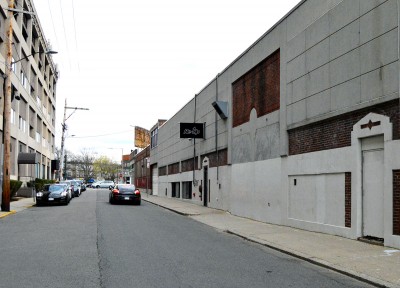The Boston Redevelopment Authority approved upwards of $215 million in new building projects largely for student housing in the city of Boston, according to a Wednesday press release from the BRA.

The release stated that the projects would account for 500 new units of housing for residents and students in Downtown Boston, South Boston, East Boston, the South End, Allston, Brighton and Mission Hill, with several involving the reuse of already-present buildings in the area.
BRA spokesman Colin Smith said the approval substantiated the stance Boston Mayor Martin Walsh has taken on the need for encouragement of student enrollment in Boston-area universities, and the ways such projects can function to further that aim.
“Those are direct corollaries to the administration platform ideals. The hope in the project of the Little Building [student accommodation at Emerson College] is to accommodate more students,” Smith said. “Boston is a university city. We’re always encouraging enrollments, and we certainly want to work with colleges to ensure that they’re able to do that.”
Two of the other approved sites, the five-story residential building on Market Street in Brighton and the renovation of rental units on Malvern Street in Allston, could directly influence Boston University students because of their proximity to campus.
In addition to encouraging enrollment in colleges, Smith also said the communal space offered by the Brighton Ice Skating Rink, which is one of the approved projects, will provide an upgraded space for community activities.
“As for the skating rink, as a space, it will become a shared space that will encourage community involvement, and that is an athletic facility, so that always activates surrounding areas,” he said.
One of the skating rink’s unique characteristics lies in its ability to provide eco-friendly, communal recreational opportunities, Smith said.
“Going back to the mayor’s platform and the BRA’s innovation and green initiatives, this building and what we’ve been promised is a building that will adhere to LEED Gold certifiable standards, so it’s just a generally good facility that we can safely say would inspire a lot of energy, movement and eco-friendly compliance,” he said.
Several residents said increasing student housing space could have benefits for multiple groups of people as long as it is done correctly.
Marcelin Johnson, 52, of Dorchester, said it is the responsibility of the City and the builders to ensure stable pricing for student accommodations.
“It doesn’t matter where they build the buildings,” he said. “The price should be the same because this is for the students and for the future.”
Sameer Kapasi, 38, of the South End, said the program has benefits to be found, mainly in the extra money the projects will bring for local businesses, and the increased student accommodations.
“At the end, it is bringing money for local business, so I do think it is reasonable,” he said. “Also, it is bringing more students in as well, and that’s important.”
Weijian Shang, 28, of Fenway, emphasized the importance of building projects to increase student living space as long as they do not take away from the historic parts of the city.
“I support this idea, because there are several universities in Boston and the number of students is growing. We need places for those students,” he said. “But the quality of living is not in good shape, so we need new buildings, as long as those buildings are not in the center area which encroach on old buildings.”


















































































































